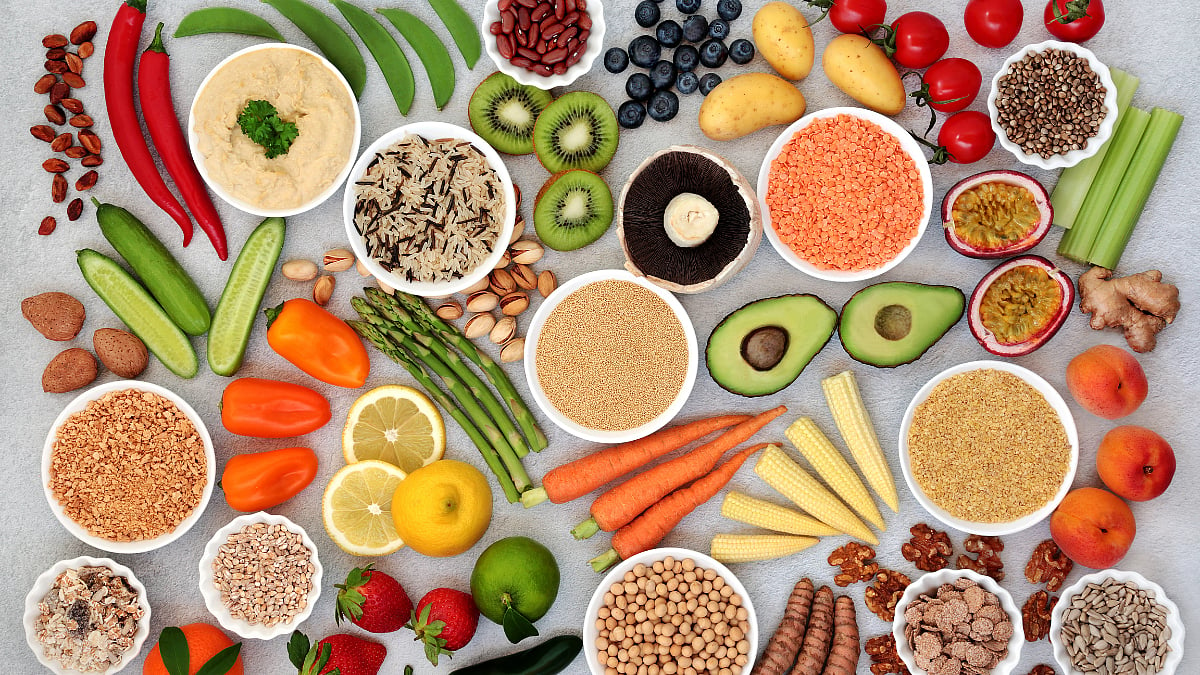Shravan 2025: Benefits Of Eating Sattvic Food During Sawan
One key aspect of this Shravan festival is the sattvic diet, which is believed to nourish not only the body but also the mind and soul.

Canva
The holy month of Shravan, also known as Sawan, is one of the most spiritually significant times in the Hindu calendar. Dedicated to Lord Shiva and Goddess Parvati, this sacred period usually falls between July and August, drawing devotees across India to observe religious fasts, rituals, and dietary disciplines.
One key aspect of this spiritual observance is the sattvic diet, which is believed to nourish not only the body but also the mind and soul. Keep reading as we delve deeper into understanding the sattvic diet and its benefits.
What is sattvic diet?
Rooted in Ayurveda, the sattvic diet is built around principles of purity, simplicity, and balance. The word "sattvic" comes from the Sanskrit word "sattva", which denotes clarity, calmness, and harmony. People following this diet aim to boost physical health while fostering inner peace and spiritual awareness.
Sattvic foods are light, fresh, and mostly plant-based. These foods are considered to enhance energy levels, promote mental clarity, and support emotional well-being.
What you can eat on a sattvic diet
During Shravan, many devotees avoid heavy or processed foods and opt instead for fresh, wholesome meals. A sattvic diet typically includes:
Fresh fruits and raw vegetables
Whole grains and sprouted grains
Legumes and lentils
Nuts, seeds, and sprouted seeds
Herbal teas and fruit juices (unsweetened)
Nut and seed milk
Milk and fresh cheese (like paneer)
Ghee
Honey (natural and unprocessed)
These foods are typically cooked fresh, with minimal oil and spices, to retain their natural energy and nutrients.
What to avoid in a sattvic diet
The diet excludes foods that are considered heavy, over-processed, or mentally agitating. During Shravan, devotees commonly avoid:
Meat, fish, and eggs
Onions and garlic
Coffee, caffeinated tea, and alcohol
Processed, microwaved, or frozen foods
Excessively salty, sour, or spicy dishes
Leftovers and stale food
Fast food and junk food
Health benefits of sattvic eating
While rooted in spiritual discipline, the sattvic diet offers numerous science-backed health benefits, as per WebMD:
Heart Health: Plant-based diets rich in fibre and low in saturated fat are linked to a 30% lower risk of ischaemic heart disease and promote better cardiovascular function.
Cancer Prevention: Fruits and vegetables in the sattvic diet are rich in phytochemicals and antioxidants, which may help lower cancer risk.
ALSO READ
Diabetes Control: Research suggests that a vegetarian diet can reduce the risk of type 2 diabetes, especially when paired with a healthy body weight.
Reduced Stroke Risk: Diets high in leafy greens, beans, and whole grains, and low in processed sugar, may help reduce the risk of stroke.
Disclaimer: This article is for informational purposes only and should not be considered a substitute for professional medical advice. Always consult your doctor for any concerns or questions regarding your health or medical condition.
RECENT STORIES
-
-
-
-
-